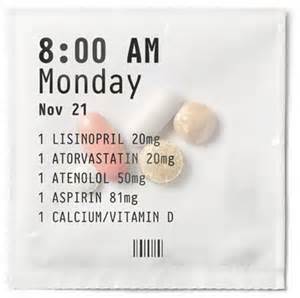Diabetes has become one of the most common diseases that have raised an alarm all over the world next to obesity. It is a problem related to sugar level of the blood. It can strike anyone at anytime. Doctors often refer to Diabetes as Diabetes Mellitus.
Diabetes has been described by doctors as a group of metabolic diseases in which the person has high blood glucose or blood sugar. It is one of the life-long health conditions that affect total health of the patient. It has been found that about 4 million people in the UK have diabetes among which many individuals are not aware of the condition. Diabetes is that condition when the amount of glucose that is present in the blood is not properly used by the body and it becomes too high.
Reasons Why Body Cannot Use Glucose Properly
When we eat, the body turns food into glucose or sugars and that point the pancreas are supposed to release insulin. If this insulin is not produced in adequate amount or the cells of the body do not respond to insulin properly, glucose level becomes very high and you become a patient of diabetes. Today diabetes has become so common that it seems like an epidemic that is taking lives of many too. The key factor that causes diabetes is lack of insulin that is naturally produced by the pancreas. Insulin opens the cells of the body and allows the glucose to enter that is used for energy.
Types Of Diabetes
Diabetes is of three types namely:
-
Type 1 Diabetes:
In this type of diabetes, the body does not produce insulin. This type 1 diabetes develops around 40 years of age and sometimes in teenage or early adulthood period also. Type 1 diabetes is not very common and is also referred to as insulin-dependent diabetes, juvenile diabetes or early-onset of diabetes.
-
Type 2 Diabetes:
In this case, the body does not produce enough insulin for proper functioning or it may happen that the cells do not react to insulin properly or they are insulin resistant. Approximately 90% people around the world suffer from Type 2 diabetes.
-
Gestational Diabetes:
This type of diabetes affects women during pregnancy. Some females experience an increase in blood-sugar levels during pregnancy and then their bodies are unable to produce sufficient amount of insulin to transport all the glucose into the cells. This results in progressive rise in the levels of glucose.
It is therefore important to take care of the proper working of the pancreas that produces insulin to maintain balance of sugar levels in the body. Glucose is obtained when carbohydrate is digested and it also comes from the liver. But if there is insufficient or no insulin at all, the body cannot properly use the glucose as fuel for energy that is required for work, play and live an active life.
Symptoms Of Diabetes
When there is not enough of insulin in the body, or the body cannot use the insulin available, it cannot convert glucose or sugar into energy. As soon as you feel lethargic and lack energy to do your regular activities you can understand that something is not right with your health. It may be weakness though due to overwork, exhaustion or otherwise, yet it is important to see the doctor at once. Other symptoms that are associated with diabetes mellitus are:
- Feeling of excess hunger and thirst
- Frequent urination
- Blurry vision
- Feeling of tiredness and weakness.
Visit your physician before these symptoms become too severe and treatment becomes difficult. It has been found that insulin therapy is often an important method of treating diabetes. If you know the part played by insulin in your body you can prevent complications arising out of diabetes. There are specific roles of insulin in the body which are:
- Regulate sugar or glucose level in bloodstream.
- Storage of excess sugar for energy.
How Is Diabetes Treated?
On examination of the blood sugar level of an individual when it is found that it is higher than what is considered as normal, doctors take steps to reduce the level of glucose at the initial stages by medications. Those who are diagnosed with Type 1 diabetes need to take insulin injections almost for their entire life. They must also follow a restricted diet and carry out regular tests to monitor blood glucose levels.
Different types of insulin meet different needs. When you are diagnosed with high blood sugar and diabetes, the first protection that the doctor prescribes for you is the man-made insulin. It helps to control the sugar level during the times of the day when you need it the most. Each type of insulin takes care to control diabetes but it must be remembered that no one type of insulin is good for everyone. Every individual has specific insulin requirement and so it is wise not to try out any one’s medicine without consulting your own physician.
It has been found that excess stress or mental tension, grief or loneliness stops the production of insulin and leads to diabetes. Another reason when you need less of insulin is when you maintain a proper diet and healthy lifestyle. Hence only your diabetic advisor can tell you exactly how much to take.
Gestational Diabetes is harmful if not treated early. Such patients are not given medicines when treatment starts. She is advised to maintain a well balanced diet, exercises and control certain bad habits like smoking and drinking.
How Insulin Is Administered In Cases Of Diabetes
Since diabetes varies from person to person the administration of insulin also differs according to the patient. In case of severe diabetes, insulin injections are given at specific intervals. Monitoring the changes in sugar levels is also very important. Hence doctors prescribe according to the body’s needs. Insulin varies in how fast they can control the blood sugar level and for how long that level is maintained. Insulin is injected underneath the skin. Those who require more doses take these injections several times a day mostly before meals. There are different ways to take the injection like syringes where you need to use a new needle for the every dose. Injection pens or an insulin pump that provides a continuous infusion of insulin through a catheter underneath the skin is also used. Tablets are also available.
Harmful Effects Of Diabetes
The spread of diabetes has created a kind of threat to mankind as there are increasing cases of diabetes these days and the problems related to it are also quite severe. Some of the most dreadful effects of diabetes are:
- Blindness
- Kidney failure
- Heart failure and stroke
- Damages the nerves
To be safe and healthy it is advisable to consult a doctor as soon as symptoms appear. Other ways to keep diabetes at bay are to maintain a healthy lifestyle, reduce weight for often obesity has been the cause of diabetes, avoid being lazy, look after what you eat, do not overeat and specially during gestation checking sugar levels is extremely important as unidentified diabetic problems can raise the risk of complications during childbirth and can even pass on to the newborn baby.




